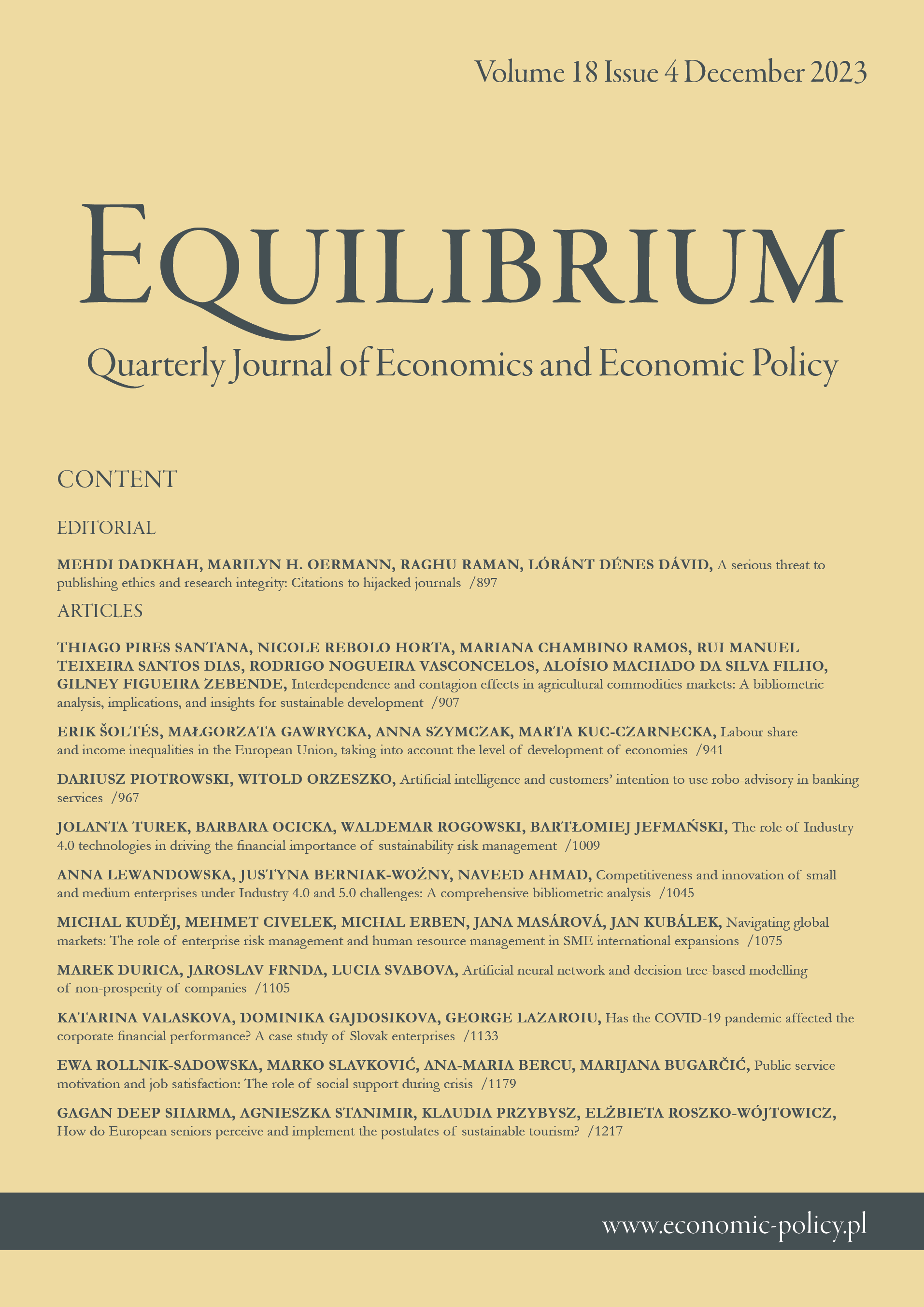Labour share and income inequalities in the European Union, taking into account the level of development of economies
Labour share and income inequalities in the European Union, taking into account the level of development of economies
Author(s): Erik Šoltés, Małgorzata Gawrycka, Anna Szymczak, Marta Kuc-CzarneckaSubject(s): National Economy, EU-Approach / EU-Accession / EU-Development, Socio-Economic Research
Published by: Instytut Badań Gospodarczych
Keywords: labour share; income inequalities; panel models; European Union;
Summary/Abstract: The relationship between labour share and income inequality is a complex and multifaceted problem. Despite ongoing discussions among economists, there is still no consensus on the direction of the relationship between labour share and income ine- quality.Purpose of the article: The article aims to assess the impact of labour share on income inequal- ity, which is measured in three ways: the Gini index of gross income, the Gini index of market incomes, and the Gini index of household disposable income.Methods: Dynamic panel data models were applied to estimate the relationship between Gini coefficients and socio-economic indicators. The study investigated 25 European Union coun- tries over the 2011–2021 period.Findings & value added: Despite the long convergence process of the EU economies, there is still great diversity in the labour share, social inequalities, and the interplay between these factors. The added value of this research is the indication of labour share impact on three Gini measures covering a diverse income spectrum (from labour and capital). Based on the re- search findings, hypothesis 1, claiming that the more developed the national economy, the lower the share of employment income, favouring capital gains, is confirmed. Hypothesis 2 (as the share of income from work increases, the Gini coefficient of gross incomes decreases) must be rejected. There is no significant relationship between labour share and the studied Gini measures in 'old' EU countries. In 'new' EU members, there is a reverse relationship than assumed in hypothesis 2. The growth of the Gini coefficient was influenced by the rise in labour share, which can be attributed to the diversity in economic structures.
Journal: Equilibrium. Quarterly Journal of Economics and Economic Policy
- Issue Year: 18/2023
- Issue No: 4
- Page Range: 941-965
- Page Count: 25
- Language: English

